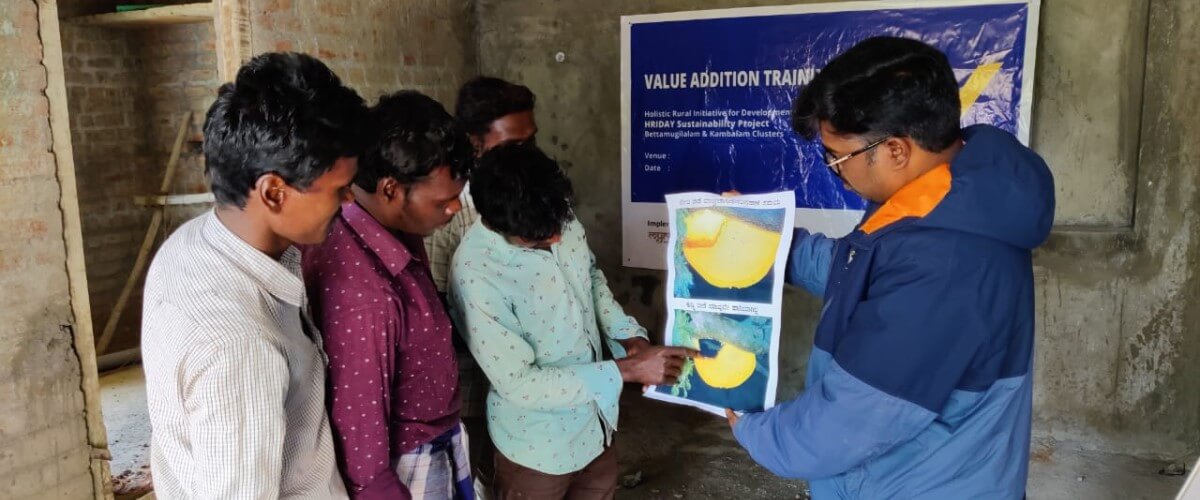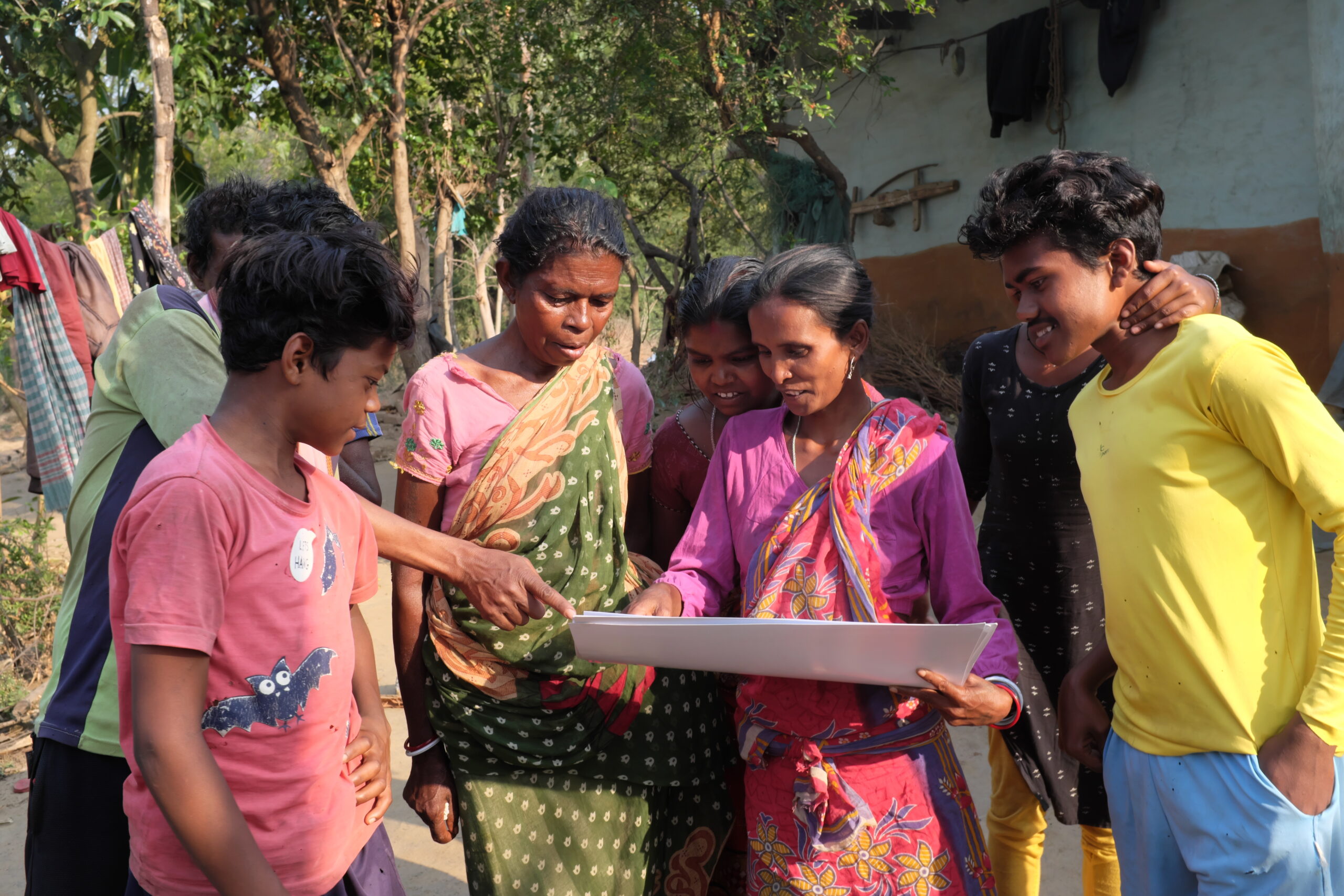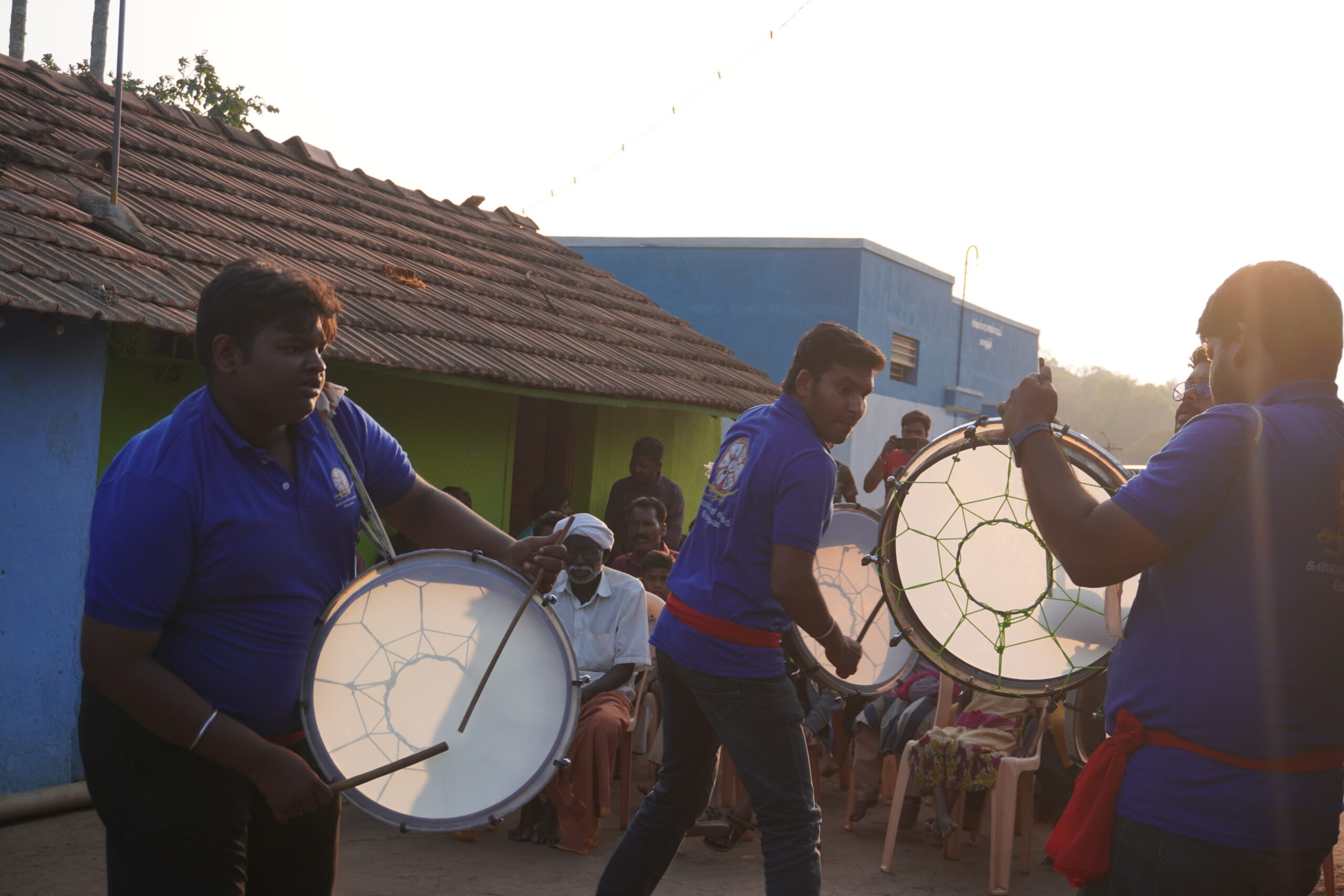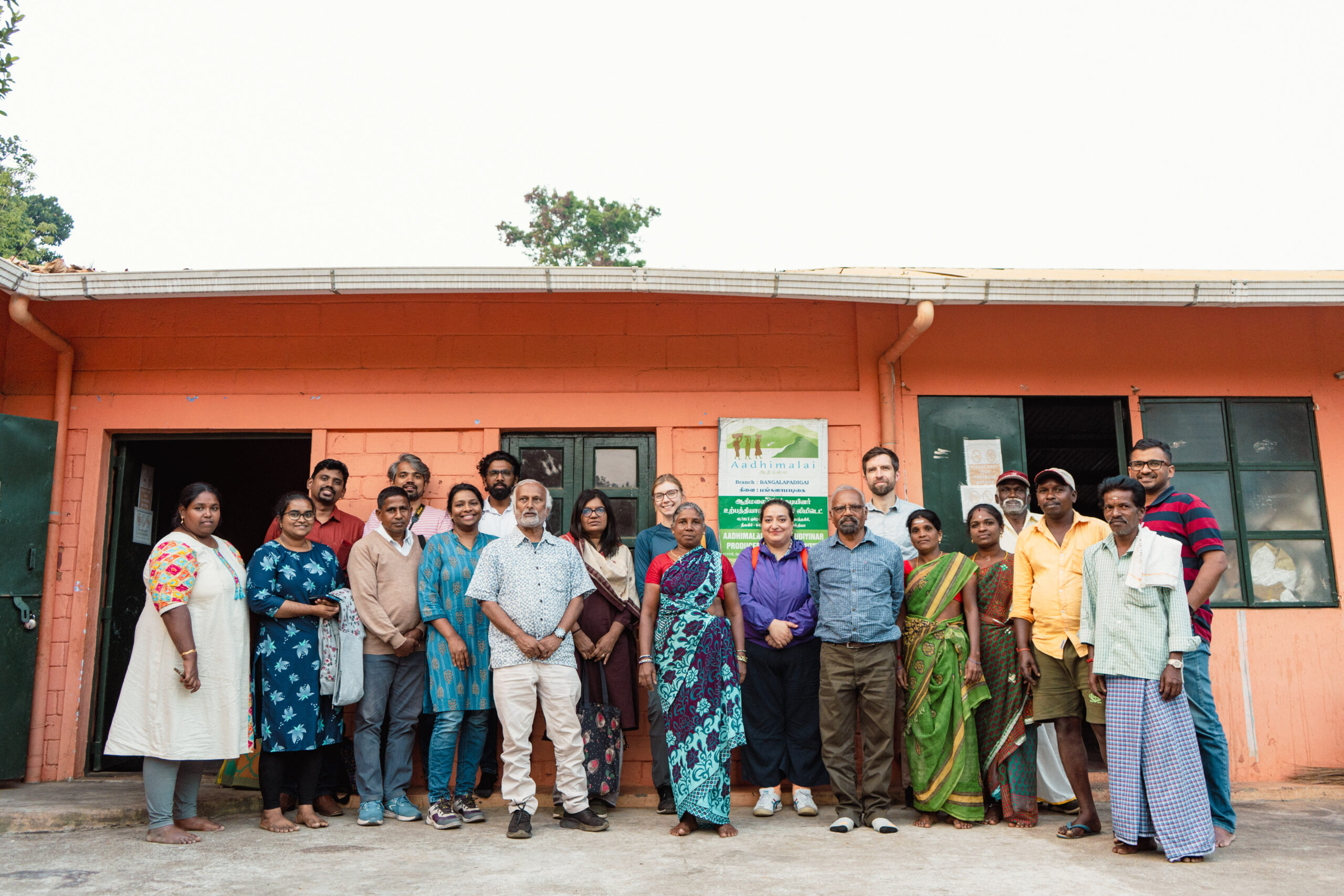March 2, 2023
By Mahadesh Basavegowda & Nathania John
Additional Programme Coordinator – Biodiversity and Communications Intern
Keystone’s team in Sathyamangalam Tiger Reserve was invited to conduct a two-day training on sustainability in honey-harvesting methods. It took place on the February 28 and March 1, in the Krishnagiri district. Pudur, one of the villages they visited, is home to Irula communities. The training was attended by 20 men and 10 women.
The first day was an introduction to the process used to collect honey from wild Apis dorsata bees and how it can be effectively marketed. Honey-hunters have built a culture of consistently harvesting honey but were not focusing on pricing appropriately, which resulted in losses.
Keystone is partnering with an impactful organisation known as Myrada to encourage these honey-hunters to inculcate sustainable collection practices into their vocation while also trying to educate them on value addition.
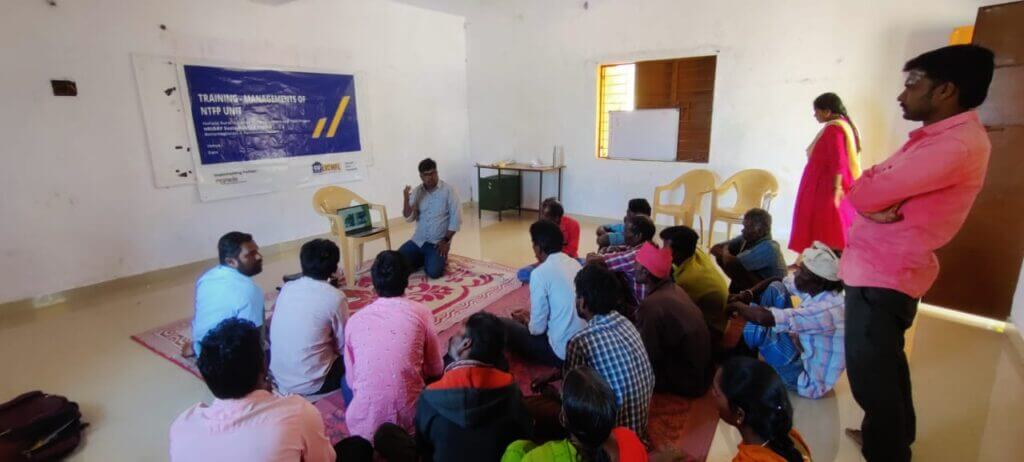
On February 28, the training kicked off in a different village where 25 people were in attendance. The sessions were centered around practical tips in harvesting wild honey and Indian gooseberry (nellikai) sustainably. Discussion points include ideal harvesting times for various wild produce, identifying seasons accurately (during June, July, and August). Collection of pure honey is best achieved through removing brood from trees that contain impurities. They also discussed the importance of observing trees to gain insight into whether a honeycomb is ready for extraction of honey or not, depending on the nature of the bees. This evaluation helps in making sure trees (and bees) are left undisturbed.
Members of the NTFP-EP are well-experienced in the field of value adding honey and gooseberry. This information helps the produce to be sold at appropriate prices in the market. Lichen, another local item that is generally collected is not value added. Another concern was the importance of hygiene and the procurement of suitable equipment such as caps, filters, lighting, storage drums, and warehouses.
Participants testified that the sessions were hugely beneficial to them. They believe that by implementing sustainable methods to their work, they will continue to make a bigger impact on the planet and at the same time support their livelihoods.

